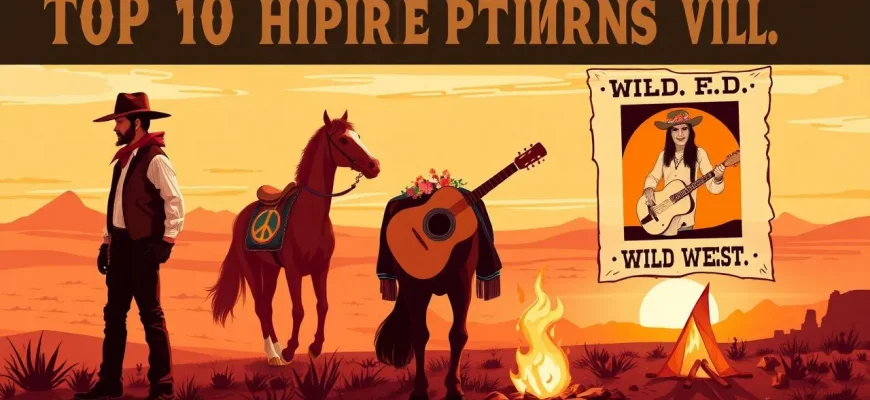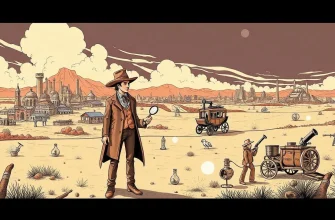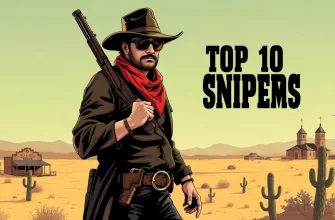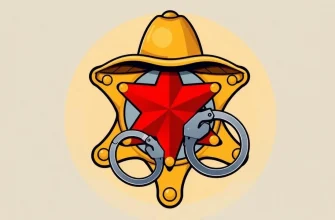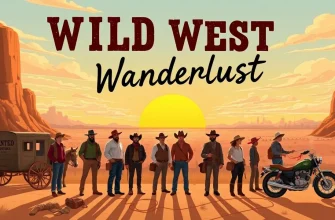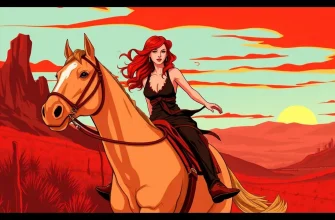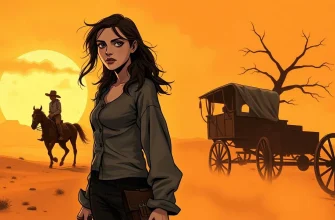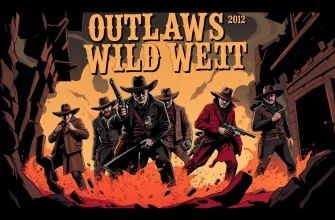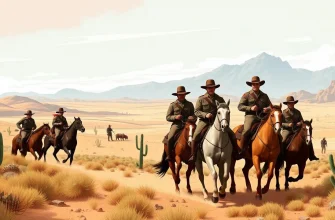The fusion of the rugged, lawless landscapes of the American West with the free-spirited, countercultural ethos of the hippie movement creates a unique cinematic experience. This collection of films showcases the intersection of these two distinct worlds, offering viewers a blend of adventure, social commentary, and the quest for freedom. Each film in this list not only captures the essence of the Western genre but also reflects the ideals and lifestyles of the hippie era, making them invaluable for those interested in both cultural phenomena.
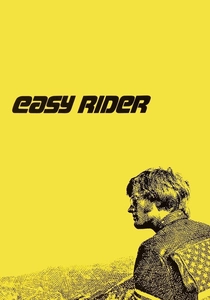
Easy Rider (1969)
Description: This iconic road movie follows two bikers traveling through the American Southwest and South, embodying the hippie spirit of freedom and rebellion against societal norms, which resonates with the Western theme of individualism.
Fact: The film was nominated for two Academy Awards and is often credited with popularizing the use of rock music in films.
 Watch Now
Watch Now
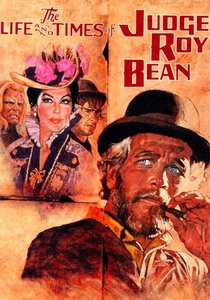
The Life and Times of Judge Roy Bean (1972)
Description: This film blends Western elements with the eccentricities of Judge Roy Bean, who, in his own way, embodies the hippie ideal of creating one's own rules and living outside societal norms.
Fact: Paul Newman stars as Judge Roy Bean, and the film features a memorable performance by Ava Gardner.
 Watch Now
Watch Now
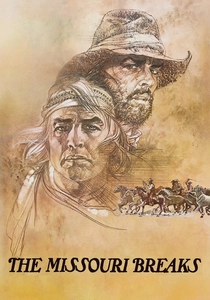
The Missouri Breaks (1976)
Description: While primarily a Western, this film features a clash of old and new values, with Marlon Brando's character representing a more traditional, lawless West, and Jack Nicholson's character embodying the spirit of change and rebellion.
Fact: The film was the first collaboration between Brando and Nicholson, both known for their unconventional acting styles.
 Watch Now
Watch Now
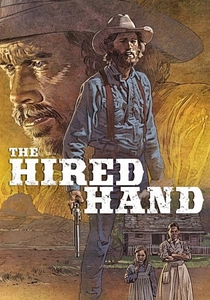
The Hired Hand (1971)
Description: Peter Fonda stars as a drifter who returns to his wife after years of wandering, blending the hippie ethos with the Western setting of a ranch and the struggle for personal freedom.
Fact: The film was directed by Fonda himself and features a haunting score by Bruce Langhorne, a key figure in the Greenwich Village folk scene.
 30 Days Free
30 Days Free
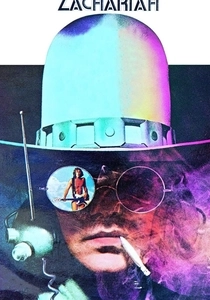
Zachariah (1971)
Description: Often described as the first electric Western, this film tells the story of two friends who become gunslingers, with a soundtrack by the likes of The James Gang and Country Joe and the Fish, encapsulating the hippie culture.
Fact: It was loosely based on the story of "Butch Cassidy and the Sundance Kid" but with a psychedelic twist.
 30 Days Free
30 Days Free
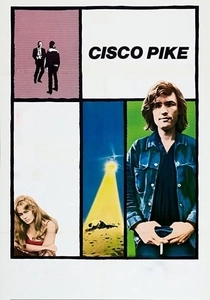
Cisco Pike (1972)
Description: This film features a former rock musician turned drug dealer, navigating the counterculture of the time, which intersects with Western themes of outlaws and the quest for personal freedom.
Fact: It was one of the first films to feature a rock star (Kris Kristofferson) in a leading role.
 30 Days Free
30 Days Free
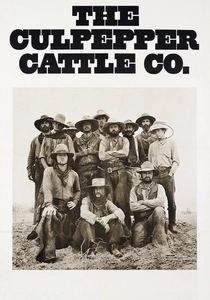
The Culpepper Cattle Co. (1972)
Description: While not explicitly about hippies, this film captures the spirit of youth seeking adventure and freedom in the Old West, mirroring the hippie's search for an alternative lifestyle.
Fact: The film was shot on location in New Mexico, providing an authentic backdrop for its story.
 30 Days Free
30 Days Free
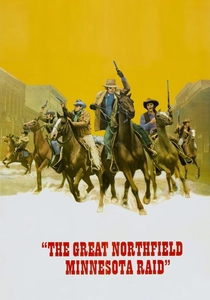
The Great Northfield Minnesota Raid (1972)
Description: This film recounts the botched bank robbery by the James-Younger Gang, showcasing the clash between the old West and the new, with undertones of the counterculture's disdain for authority.
Fact: The film was directed by Philip Kaufman, who later directed "The Right Stuff."
 30 Days Free
30 Days Free

The Last Movie (1971)
Description: Directed by Dennis Hopper, this experimental film follows a stuntman who stays in Peru after a Western film shoot, exploring themes of disillusionment and the clash between traditional Western values and the hippie lifestyle.
Fact: Hopper's vision was so avant-garde that it led to conflicts with the studio, resulting in a heavily edited version being released.
 30 Days Free
30 Days Free

The Legend of Nigger Charley (1972)
Description: This Blaxploitation Western features a freed slave who becomes an outlaw, embodying the spirit of rebellion and freedom that resonates with the hippie movement.
Fact: It was part of a trilogy, with two sequels following the adventures of Charley.
 30 Days Free
30 Days Free

